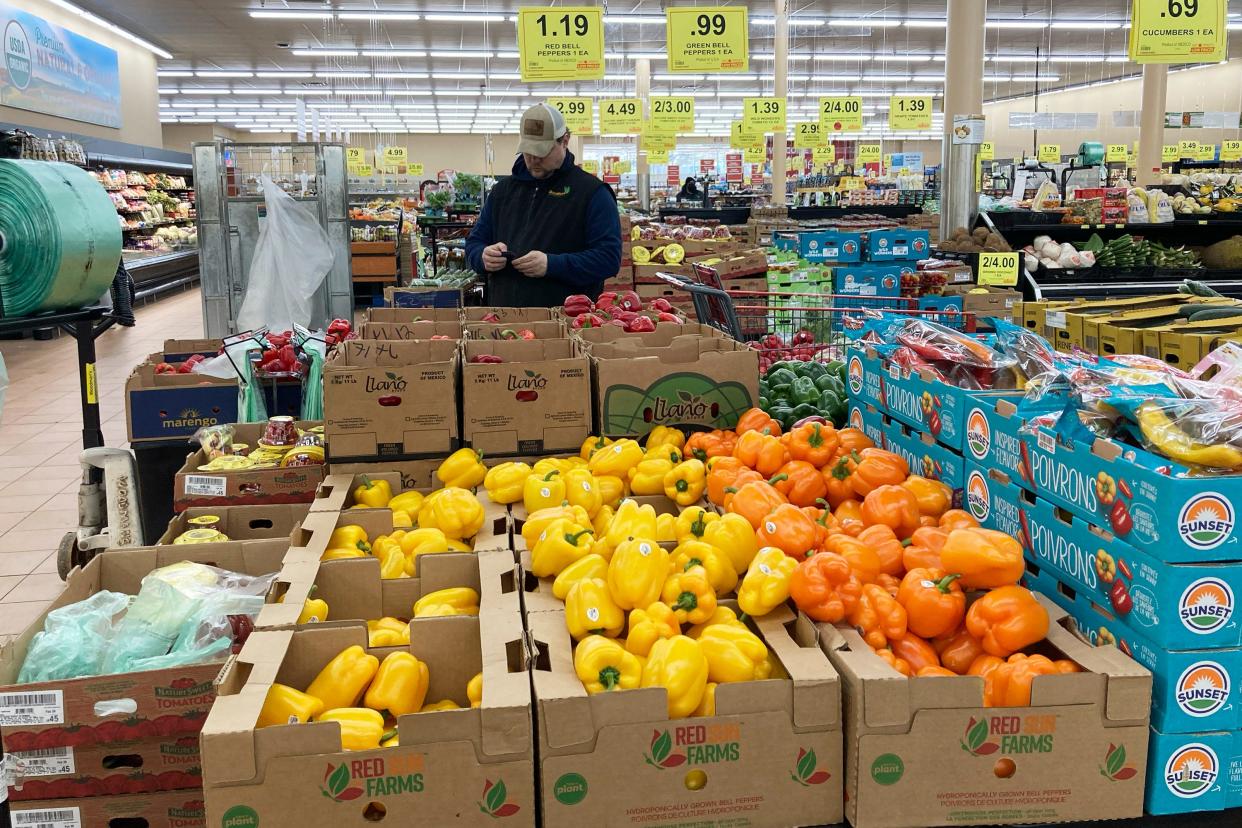Poll shows concern about tax cuts, dissatisfaction with schools

- Oops!Something went wrong.Please try again later.
A majority of Oklahoma voters are concerned that cutting taxes could leave state services vulnerable if the economy weakens, according to a new poll that again shows state voters would prefer a cut in the sales tax on groceries over other options.
The poll, by Amber Integrated of Oklahoma City, also shows deep dissatisfaction across political parties and independent voters with the education being provided in their local schools. Only 31% of those polled said they were very or somewhat satisfied with the quality of education being provided to students in their communities.
The poll was taken Oct. 6-8 of 500 likely voters in Oklahoma, weighted based on party affiliation, age, gender and level of education. The margin of error is 4.4%.
The survey was taken just days after the state Senate adjourned a special session called by Gov. Kevin Stitt to address tax cuts. Stitt did not present a specific tax-cutting plan, but he has for years called for cutting the state income tax and the state portion of the sales tax on groceries.
House Speaker Charles McCall III was ready to cut the state income tax at the special session before the Senate adjourned.
In the new poll, 54% of the voters surveyed said they were concerned that a tax cut might lead to reductions in state services if the economy takes a downturn.
Republicans were far less likely to have that concern: Only 41% of GOP voters said they were concerned about state services, while 58% were not concerned. But 77% of Democratic voters and 59% of independents said they were concerned state services could suffer during an economic downturn.
The state had to slash education, public safety and other services after a revenue failure in 2015 and experienced more budget shortfalls in the years after. That led to the biggest tax increase in state history in 2018, which stabilized the state’s budget situation and helped create record surpluses.
Stitt has argued that the state is now taking more money than needed from taxpayers and that the surpluses shouldn’t be used to build a bigger government, since that is more likely to lead to cuts when the economy softens.
Senate President Pro Tem Greg Treat, R-Oklahoma City, wanted Stitt to appear before a Senate committee during the special session to answer questions about the impact of tax cuts on annual revenue. When Stitt declined to appear, Treat moved to shut down the special session.
Treat supports eliminating the state sales tax on groceries and sponsored legislation last year to do so. There is broad support among lawmakers for cutting the state portion of the sales tax on groceries. And for the second time in a year, an Amber Integrated survey shows that is the preference of Oklahoma voters surveyed by the firm.
In the new poll, voters were given two options for a tax cut — the income tax and the state sales on groceries. Nearly two-thirds — 64% — chose the sales on groceries, while 35% chose the income tax; 1% were undecided or didn’t know, according to the poll.
Cutting the sales tax was preferred most by Democrats — 75% — but a strong majority of Republicans and independents also favored that option over cutting the income tax.
In October 2022, the firm gave voters four options for tax cuts: the sales tax on groceries, the sales on all items, the income tax and the gasoline/diesel tax. The sales tax on groceries garnered support from 41%, followed by the sales tax on all items, 21%.
Sales taxes have a disproportionate impact on low-income people, and, because of that, many states do not impose that tax on food. Oklahoma is one of only 13 states that has a sales tax on groceries, according to Treat’s office.
Stitt and the Legislature agreed this year to put an additional $600 million into common education, a huge boost of recurring funds.
That boost comes as Oklahoma voters are dissatisfied with their local schools.
The Amber Integrated poll shows 64% of the voters surveyed are dissatisfied with the quality of education being provided to students in their communities, with 38% very unsatisfied. Only 10% said they were very satisfied and 21% said they were somewhat satisfied.
The dissatisfaction crossed partisan boundaries: 61% of Republican voters said they were dissatisfied, while 63% of Democrats and 76% of independents expressed that sentiment.
This article originally appeared on Oklahoman: Poll shows concern for state tax cuts, dissatisfaction with schools

